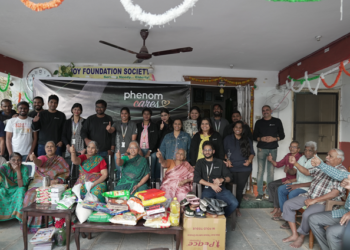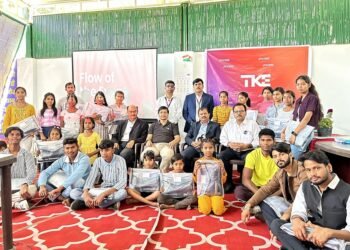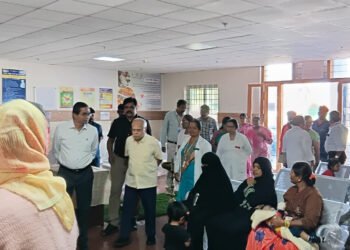To create truly impactful and long-lasting Corporate Social Responsibility (CSR) initiatives, simply gauging program outcomes isn’t enough. Businesses and implementing agencies must adopt a dual approach that analyzes both the impact of their programs and the effectiveness of the implemented strategies. This ensures not only short-term success but also sustainable and scalable CSR efforts. Here at Bluesky Sustainable Business (BSSB), we utilize a framework built upon the principles of ISO 26000, which seamlessly combines assessing impacts from stakeholders with a thorough evaluation of program implementation. This comprehensive approach allows us to foster resilient and adaptable CSR initiatives that leave a lasting positive footprint on society.
Case Study: The Grameen Bank and Microfinance for Poverty Alleviation: A Model of Effective CSR Implementation
The Grameen Bank, established in Bangladesh in 1976 by Muhammad Yunus, presents a compelling case study of a Corporate Social Responsibility (CSR) initiative demonstrably leading to long-term positive societal impact. Grameen Bank, as of 2022, serves 10.27 million borrowers through 2568 branches. Its success can be attributed, in large part, to the meticulous process followed during its inception and implementation.
Context and Challenges
- Widespread poverty in Bangladesh, disproportionately affecting women.
- Lack of access to financial services for the underprivileged, hindering their ability to participate in income-generating activities.
***
Effective Process
- Needs Assessment and Community Engagement: Yunus conducted thorough research to understand the specific needs and challenges faced by local communities, particularly women. This fostered trust and ensured the project directly addressed community priorities.
- Targeted Intervention: Recognizing women’s vulnerability and potential for societal influence, the bank strategically targeted them, promoting gender equality and empowering them to become agents of transformation within their families and communities.
- Innovative Loan Model: The bank implemented a unique group-based lending system, fostering a sense of collective responsibility and peer support. This mitigated the risk of loan defaults and fostered a culture of financial management within the communities.
- Focus on Sustainability: The program emphasized loan repayment and reinvestment, ensuring long-term financial viability and enabling the bank to reach a wider population over time.
- Rigorous Monitoring and Evaluation: Grameen Bank continuously measured its impact on poverty reduction, income generation, and female empowerment. This data-driven approach allowed for continuous improvement and adaptation of the program for greater effectiveness.
***
Long-Term Outcomes
- The Grameen Bank has demonstrably reduced poverty rates in Bangladesh by providing microloans to millions of individuals over several decades.
- By empowering women to start businesses and generate income, the program has significantly improved the living standards of countless families.
- The model’s success has inspired widespread replication across numerous countries, showcasing its scalability and potential to create positive social change on a global scale.
***
Key Takeaways
- Community-Centric Approach: Meaningful CSR initiatives require a deep understanding of the needs and challenges faced by target beneficiaries.
- Empowerment Focus: Beyond simply providing resources, effective CSR programs should aim to empower individuals and communities to drive lasting and sustainable change.
- Sustainability Planning: Integrating long-term financial and social sustainability into the program design is crucial for ensuring its continued impact.
- Measurement and Evaluation: Continuously monitoring and evaluating the program’s effectiveness allows for data-driven adaptation and improvement.
The Grameen Bank serves as a powerful example of how a well-designed and meticulously implemented social development program can contribute significantly to addressing social challenges and fostering positive societal change. By adopting these principles, businesses can create impactful CSR initiatives that contribute to a more equitable and sustainable future.
Bluesky Sustainable Business LLP, with its website at blueskycsr.com, stands out as a leading expert in inspecting the processes and practices followed in CSR projects across India. Their expertise stems from their accreditation as an Independent Type A Inspection Body by the National Accreditation Board for Certification Bodies (NABCB), which is affiliated with India’s Quality Council. This accreditation signifies the highest level of trust and credibility in their CSR Impact Assessment services.
By choosing Bluesky for your CSR project inspections, you can be confident in receiving a thorough and impartial evaluation based on internationally recognized standards. This not only ensures that your CSR initiatives are implemented effectively but also fosters transparency and builds trust with stakeholders.
(India CSR)






















